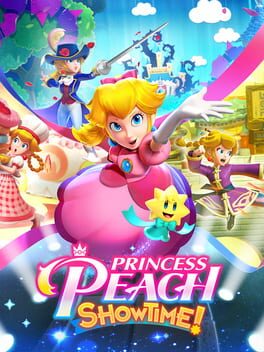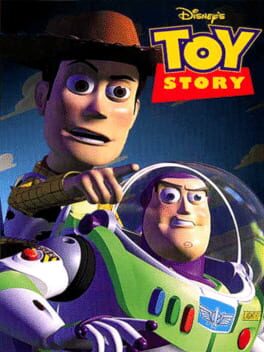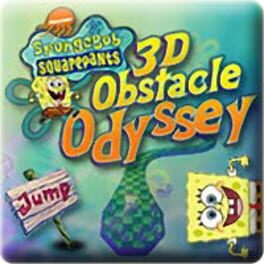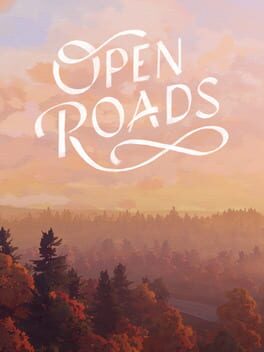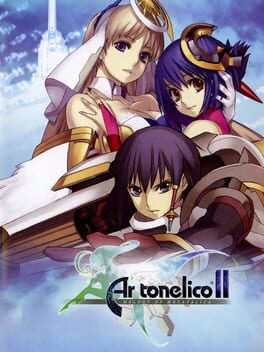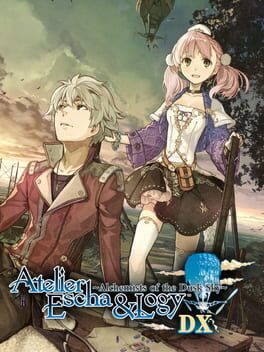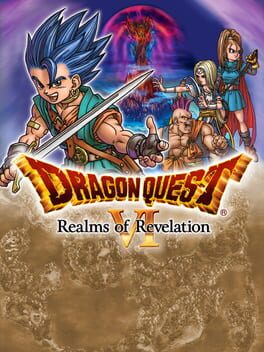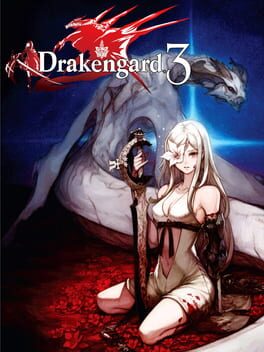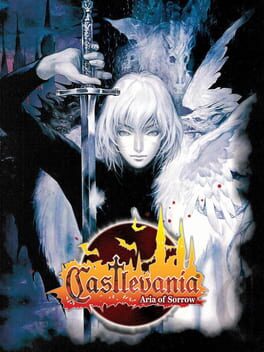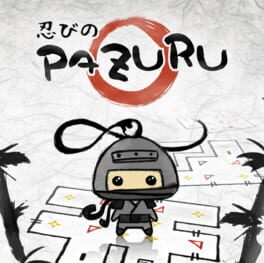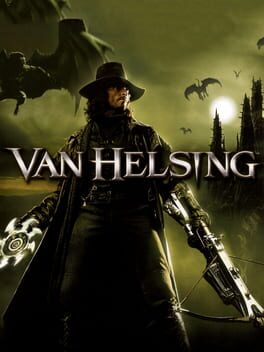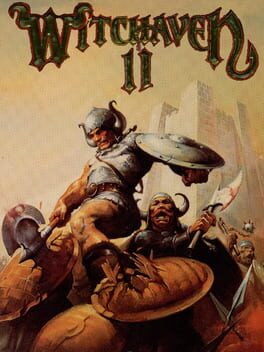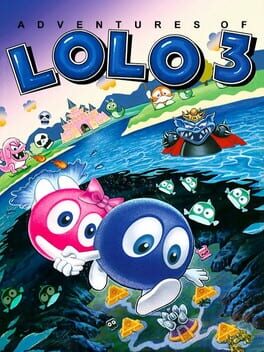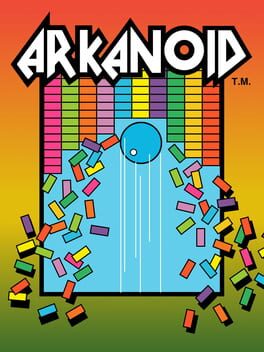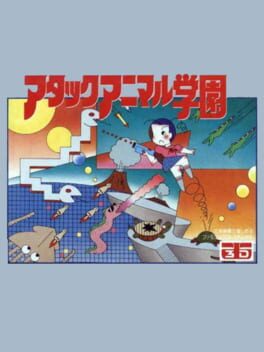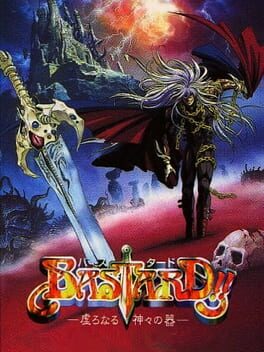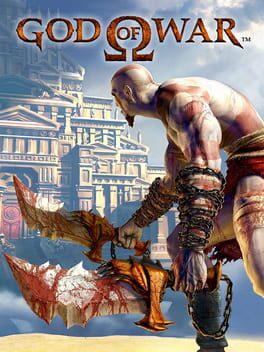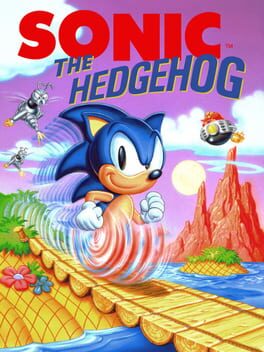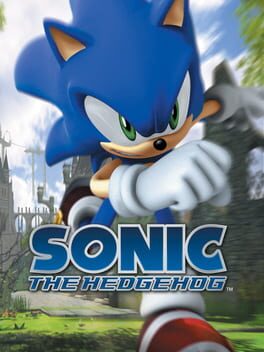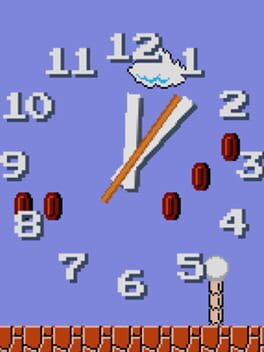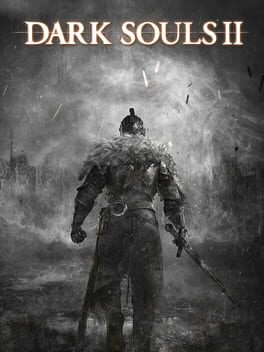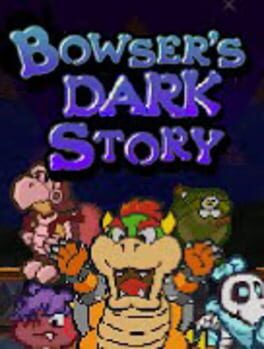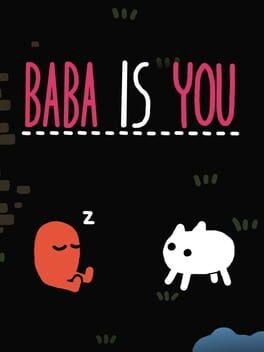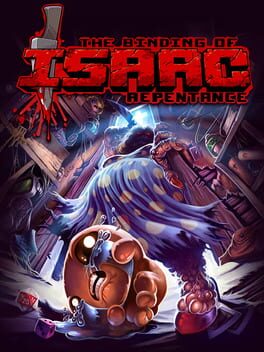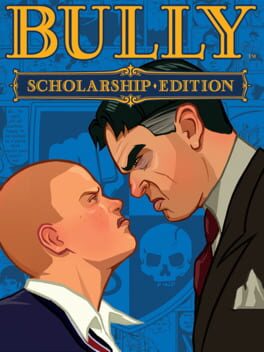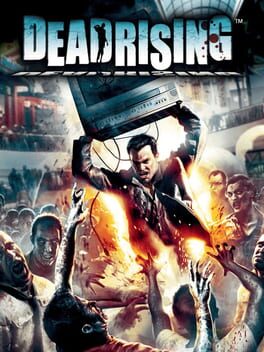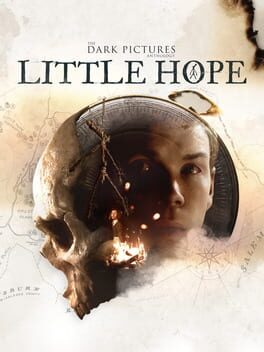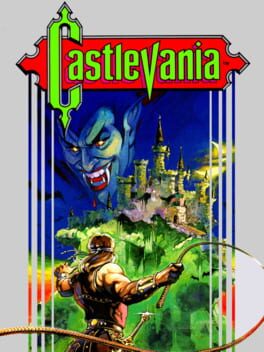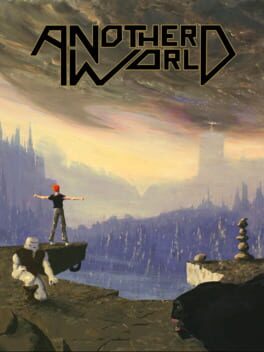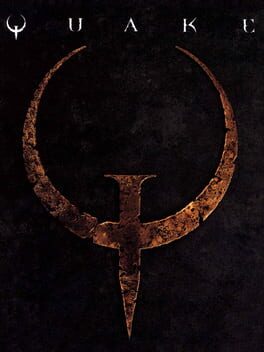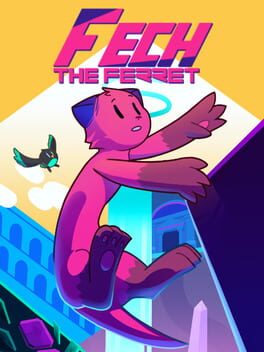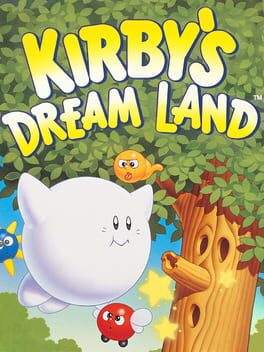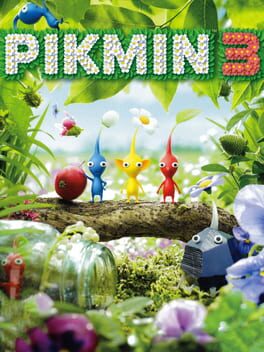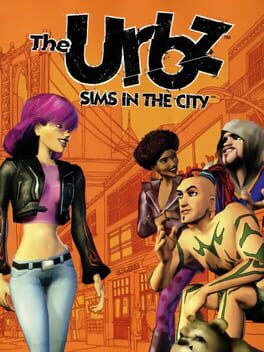Ninjabunny
1644 reviews liked by Ninjabunny
The Unholy War
1998
I thought the aftermarket for PlayStation 1 games was more cost prohibitive, but you can get a complete copy of The Unholy War for only twenty dollars. What a steal for a demo of The Legacy of Kain: Soul Reaver.
The truth is, I've had a cinematic platformer itch for a while now that only Lorne Lanning can scratch, so I was in the market for both Oddworld games when I came across a bundle that had Oddysee, Exoddus , and a copy of The Unholy War. Nice, a free game [Note: if you get something extra as part of a bundle, you still paid for it.] I'd never heard of The Unholy War until then, and my suspicion is that it holds very little relevancy outside of 90s kids who enjoyed playing it with friends and have developed nostalgia for it.
After spending the better part of my morning with it, I could see that being the case had I actually played The Unholy War back in '98. It's a perfectly serviceable early 3D arena brawler with a good spread of characters, but there's nothing really remarkable outside of "strategy" mode, which attempts to marry the arena fighting with SRPG board navigation. This is where counterpicks matter the most, as it's very easy to lose one of your units if you put yourself against an enemy they're weak against, and it's likewise important for you asserting control over the board.
But this mode still feels like it's lacking something. The strategic layer is very bare and actual board movement feels crummy. There's an idea there, but the execution leaves something to be desired and it ultimately just feels like more steps to get to the brawling.
Part of what makes collecting fun - and buying bundles/lots of games in particular - is getting at stuff like this which you've never heard of or played before. The Unholy War might be a perfectly average game in my eyes, but I think it's neat. Probably won't play it again but would definitely pick it up off the shelf, hold it in my hands and think "I can play the demo to The Legacy of Kain: Soul Reaver any time I want."
The truth is, I've had a cinematic platformer itch for a while now that only Lorne Lanning can scratch, so I was in the market for both Oddworld games when I came across a bundle that had Oddysee, Exoddus , and a copy of The Unholy War. Nice, a free game [Note: if you get something extra as part of a bundle, you still paid for it.] I'd never heard of The Unholy War until then, and my suspicion is that it holds very little relevancy outside of 90s kids who enjoyed playing it with friends and have developed nostalgia for it.
After spending the better part of my morning with it, I could see that being the case had I actually played The Unholy War back in '98. It's a perfectly serviceable early 3D arena brawler with a good spread of characters, but there's nothing really remarkable outside of "strategy" mode, which attempts to marry the arena fighting with SRPG board navigation. This is where counterpicks matter the most, as it's very easy to lose one of your units if you put yourself against an enemy they're weak against, and it's likewise important for you asserting control over the board.
But this mode still feels like it's lacking something. The strategic layer is very bare and actual board movement feels crummy. There's an idea there, but the execution leaves something to be desired and it ultimately just feels like more steps to get to the brawling.
Part of what makes collecting fun - and buying bundles/lots of games in particular - is getting at stuff like this which you've never heard of or played before. The Unholy War might be a perfectly average game in my eyes, but I think it's neat. Probably won't play it again but would definitely pick it up off the shelf, hold it in my hands and think "I can play the demo to The Legacy of Kain: Soul Reaver any time I want."
Alan Wake
2010
Normally if I enjoy a game I'd either try to have fun with my writing and do something corny like roleplaying as a character or go insanely heavy on the showmanship, but for the sake of this I'm actually going to be really vanilla and bore everyone to death.
Before I heel out, I'd like to let it be known that I was rooting for this game. When it was originally revealed in one of the Directs, I clapped, I hooted, and I hollered, for she deserves the universe and everything in it. She's an icon, she's a legend, and she is the moment. I heard it get compared to Wario World, which made me bounce off walls like Spring Wario from the classic Game Boy games. I could imagine it now, Peach womanhandling every bad guy in sight and going on an exciting journey through every genre of artistic theater known by Mushroomy Kingdom history. Unfortunately, comparing Good-Feel to even one of Treasure's lesser developments is essentially like putting silly putty next to an unpolished diamond.
"Engagement" and "difficulty" are two separate things, and it really needs to be stressed that the latter means little in the grand stage of what makes a game do what a game does, which is engage the player and take their mind off life, with the "fun yeah woo" energy replacing all their other thought processes. Spyro the Dragon and Ninja Gaiden are on opposite ends of the spectrum and still manage to be a few of my favorites to ever do it. Just a few days ago, I played Bugs Bunny Lost in Time on stream in a Discord call with one of my friends as she did some programming, and that is a game "made for children" with very little punishment dealt out for mistakes. For how jank and lower budget it was, it was fun with decent puzzles, cool ship combat, car chase segments, and even pretty good boss fights! It's something I enjoyed when I was eight, and still do now as an adult.
Peach Showtime for all of it's poor performing extravagance doesn't even use a lot of the joycon's controls, and many segments are very linear and on-rails with one of the Detective Peach puzzles quite literally having the solution put up on the wall for you. Using a simple control scheme is never a bad thing in itself, I enjoy an Atari game now and then, but the fine art of utilizing that simple control scheme demands creativity that extends beyond auto-scrolling sections that make 100%'ing the game annoying. It would also ask for enemies to master the very tricky art of "moving the fuck around a little" to justify having the world's most lenient parry window. It's frustrating, because for every half-decent powergaming moment that involves throwing hitboxes around enemies that are less threatening than beginner mode Musou soldiers it's spliced between very uninteresting unskippable dialogue, uneventful non-combat plays, auto-scrolling/auto-running sections, and "puzzle" segments that are more trivial than microwave cooking. It makes me drowsy! I've played stuff like Toy Story Activity Center off the Collection Chamber and Number Munchers last year, and that stuff was pretty fun despite the target audience! Hell, I still come back to Wacky Worlds Creativity Studio on Sega Genesis just to screw around with the music maker! It stimulates my imagination, unlike Peach Showtime!
Give kids some respect, or even better give Peach some respect. A little bit of both I feel would go a long way.
....Also, I know I'm preaching to the choir on this subject, but why does the game run so goddamn bad? The loading screen and results screen run worse than a bunch of Atari Jaguar games I've played, was it a bad style choice? It would check out I guess, I may as well be playing a movie game.
A dull direct-to-VHS Disney movie game.
Before I heel out, I'd like to let it be known that I was rooting for this game. When it was originally revealed in one of the Directs, I clapped, I hooted, and I hollered, for she deserves the universe and everything in it. She's an icon, she's a legend, and she is the moment. I heard it get compared to Wario World, which made me bounce off walls like Spring Wario from the classic Game Boy games. I could imagine it now, Peach womanhandling every bad guy in sight and going on an exciting journey through every genre of artistic theater known by Mushroomy Kingdom history. Unfortunately, comparing Good-Feel to even one of Treasure's lesser developments is essentially like putting silly putty next to an unpolished diamond.
"Engagement" and "difficulty" are two separate things, and it really needs to be stressed that the latter means little in the grand stage of what makes a game do what a game does, which is engage the player and take their mind off life, with the "fun yeah woo" energy replacing all their other thought processes. Spyro the Dragon and Ninja Gaiden are on opposite ends of the spectrum and still manage to be a few of my favorites to ever do it. Just a few days ago, I played Bugs Bunny Lost in Time on stream in a Discord call with one of my friends as she did some programming, and that is a game "made for children" with very little punishment dealt out for mistakes. For how jank and lower budget it was, it was fun with decent puzzles, cool ship combat, car chase segments, and even pretty good boss fights! It's something I enjoyed when I was eight, and still do now as an adult.
Peach Showtime for all of it's poor performing extravagance doesn't even use a lot of the joycon's controls, and many segments are very linear and on-rails with one of the Detective Peach puzzles quite literally having the solution put up on the wall for you. Using a simple control scheme is never a bad thing in itself, I enjoy an Atari game now and then, but the fine art of utilizing that simple control scheme demands creativity that extends beyond auto-scrolling sections that make 100%'ing the game annoying. It would also ask for enemies to master the very tricky art of "moving the fuck around a little" to justify having the world's most lenient parry window. It's frustrating, because for every half-decent powergaming moment that involves throwing hitboxes around enemies that are less threatening than beginner mode Musou soldiers it's spliced between very uninteresting unskippable dialogue, uneventful non-combat plays, auto-scrolling/auto-running sections, and "puzzle" segments that are more trivial than microwave cooking. It makes me drowsy! I've played stuff like Toy Story Activity Center off the Collection Chamber and Number Munchers last year, and that stuff was pretty fun despite the target audience! Hell, I still come back to Wacky Worlds Creativity Studio on Sega Genesis just to screw around with the music maker! It stimulates my imagination, unlike Peach Showtime!
Give kids some respect, or even better give Peach some respect. A little bit of both I feel would go a long way.
....Also, I know I'm preaching to the choir on this subject, but why does the game run so goddamn bad? The loading screen and results screen run worse than a bunch of Atari Jaguar games I've played, was it a bad style choice? It would check out I guess, I may as well be playing a movie game.
A dull direct-to-VHS Disney movie game.
Disney's Toy Story
1995
Kind of bullshit throughout the whole runtime but has lots of very interesting technical feats under its belt. The Pizza Planet level is especially interesting, and the first person level is much smoother than anything else of its ilk on the console. Could definitely stand to be more playable in the grand scheme of things, but it's at least endearing.
Pentiment
2022
Kinda went into Pentiment expecting to have to "eat my vegetables"; its aesthetic being artistically sound, but not really the kind of thing I'm generally into, and its premise sounding intellectually invigorating in a games industry that's arguably in arrested development when it comes to making mainstream experiences for adults, but maybe not enough to keep me personally going for a playtime of over 20 hours. And well, I was pretty fuckin' wrong! And not even in the Disco Elysium way where after I got over the hurdle of the first hour or two that it finally clicked (not to say that Disco Elysium's intro isn't basically perfect in its own way), Pentiment managed to sink its teeth into me right away. The game's art is also a lot more affective and unique than I would've expected just from the couple trailers I'd seen, and despite the entire game taking place across only a handful of screens (contextualized as pages in a book), there were many times that I found myself stopped in my tracks, contemplating the beauty of a specific moment.
It's also just as real as fuck without succumbing to either condemnation or romanticization. Pentiment's perspective on history and the people who shaped it is complex without cowardly labeling every participant as a morally grey agent -- there are unabashedly terrible and evil people in this world, people who are deceptive in their self-servitude, and even inarguably cruel entities like the Catholic Church house individuals who really do want to make the world a better place in their own way and even people who are in the church due to societal forces beyond their control. Pentiment is a game that tries its best to be honest about the world. It's also a game that's absolutely more intelligent and worldly than I'll ever be, and I really don't think I can do it the full justice it deserves in my own analysis of its setting and themes, so I'll just leave it there.
And yeah, Pentiment is also just a great example of how to make a dialogue-focused adventure game fun. Like, part of that is probably because I chose hedonism as one of my skills and made Andreas into a terrible little boyslut, but you know how it is. The dialogue never bored me, every character feels truly alive -- and that's without voice acting! I actually appreciated that there wasn't any honestly, it's a double-edged sword in a lot of games like this, and it only would've detracted from the bespoke aesthetic decision to give every character's spoken dialogue in "their own handwriting", in quotes because I'm not entirely sure what the implication was for the characters that are by their own admission illiterate (but I did love that Claus the town printer's dialogue is the only one that uses an actual typeface, accompanied by the satisfying thuds of a printing press).
By the end of the game, Tassing really does begin to feel like your home as well, not only because many pivotal events in Tassing's recent history are influenced by the player, but because you've grown close to the town's citizens and watched them grow and change as well. Pentiment isn't a power trip in that sense -- you cannot save everybody or give everybody a happy ending, not that you'd want to with some of the assholes you run into honestly -- but it does manage to encapsulate the warm and fuzzy feeling that despite the world being dogshit, we can still do our best for those around us, be a part of a greater whole with honest fervor. The player and Andreas will inevitably fuck up a lot, but it's something we have to live with, something to learn from. Things like that feel self-evident in the real world and are rarely explored properly in games, but the fact that Pentiment lacks a manual save function really sells that feeling. But even if we can't meta-game Tassing into the perfect little Bavarian town suffering under feudalism and religious oppression, the Tassing we end up with is undeniably ours. I think that's probably why I might never replay Pentiment, which is rare for me, since I tend to replay games I love quite often.
Also the "third act" is pretty good! Saw some people criticizing the shift in gameplay focus, but it was a nice change of pace and was probably my favorite part altogether. Don't normally recommend games on here, but honestly, check it out for yourself. I can't really think of many demographics that'd be outright disappointed by Pentiment. It's good. :)
It's also just as real as fuck without succumbing to either condemnation or romanticization. Pentiment's perspective on history and the people who shaped it is complex without cowardly labeling every participant as a morally grey agent -- there are unabashedly terrible and evil people in this world, people who are deceptive in their self-servitude, and even inarguably cruel entities like the Catholic Church house individuals who really do want to make the world a better place in their own way and even people who are in the church due to societal forces beyond their control. Pentiment is a game that tries its best to be honest about the world. It's also a game that's absolutely more intelligent and worldly than I'll ever be, and I really don't think I can do it the full justice it deserves in my own analysis of its setting and themes, so I'll just leave it there.
And yeah, Pentiment is also just a great example of how to make a dialogue-focused adventure game fun. Like, part of that is probably because I chose hedonism as one of my skills and made Andreas into a terrible little boyslut, but you know how it is. The dialogue never bored me, every character feels truly alive -- and that's without voice acting! I actually appreciated that there wasn't any honestly, it's a double-edged sword in a lot of games like this, and it only would've detracted from the bespoke aesthetic decision to give every character's spoken dialogue in "their own handwriting", in quotes because I'm not entirely sure what the implication was for the characters that are by their own admission illiterate (but I did love that Claus the town printer's dialogue is the only one that uses an actual typeface, accompanied by the satisfying thuds of a printing press).
By the end of the game, Tassing really does begin to feel like your home as well, not only because many pivotal events in Tassing's recent history are influenced by the player, but because you've grown close to the town's citizens and watched them grow and change as well. Pentiment isn't a power trip in that sense -- you cannot save everybody or give everybody a happy ending, not that you'd want to with some of the assholes you run into honestly -- but it does manage to encapsulate the warm and fuzzy feeling that despite the world being dogshit, we can still do our best for those around us, be a part of a greater whole with honest fervor. The player and Andreas will inevitably fuck up a lot, but it's something we have to live with, something to learn from. Things like that feel self-evident in the real world and are rarely explored properly in games, but the fact that Pentiment lacks a manual save function really sells that feeling. But even if we can't meta-game Tassing into the perfect little Bavarian town suffering under feudalism and religious oppression, the Tassing we end up with is undeniably ours. I think that's probably why I might never replay Pentiment, which is rare for me, since I tend to replay games I love quite often.
Also the "third act" is pretty good! Saw some people criticizing the shift in gameplay focus, but it was a nice change of pace and was probably my favorite part altogether. Don't normally recommend games on here, but honestly, check it out for yourself. I can't really think of many demographics that'd be outright disappointed by Pentiment. It's good. :)
This review contains spoilers
This is a companion to my initial thoughts on Rebirth, and if you're like me and just kind of mindlessly click on things that are spoiler tagged, consider this your warning that I will be talking about the game's ending and many other elements unique to Rebirth's narrative. But first, I'm gonna start off by going over some stuff I missed in that first review: side quests are overall higher quality and hold a lot more intrinsic value (i.e. they're actually kinda rewarding on their own merit and not just for the rewards themselves; i love the one with the puppy and the one with the cats don't remember da rest tbh), however there's way more of them so numerically speaking there's a lot more stinkers and personally I'm just not a huuuge fan of gameifying progression within relationships -- the bright side of that is the relationship system isn't really that strict, and I think you get more relationship boosts for just playing the main scenario and using synergy abilities than you'd expect. Didn't really annoy me as much as other AAA games, but I'd say I prefer just having relationships form naturally through the narrative (or have the progression be invisible like the original, at least until new game plus, which they did partially do).
On that note, I really loved the chapter 12 visit to the Gold Saucer; Final Fantasy VII finally has its 90s love ballad and I think compared to its PSX Final Fantasy theme song brethren it's my new favorite (still fucking love Eyes on Me and Melodies of Life tho). Highly recommend aiming for the Tifa date, it's really awkward how non-present she is in the Loveless sequence compared to other characters when you go for Aerith being the princess in the Loveless play, and her little words of encouragement to Aerith before she sings is so cute (me when I see a girl being nice to another girl in a piece of media: she's literally me). I'm happy it's pretty easy to go back and see different variations of the date in new game plus though. Also Cloud and Tifa in the ferris wheel was pretty cute, and he wasn't a butthole for once, which like god damn he fucking SUCKS in this game it kinda rules.
I think my one major gripe is that they added a new sequence to the Gongaga Reactor portion where Cloud essentially puts Tifa in mortal peril, but nobody feels as upset about it as they should? Like maybe I'm just reading the scenes wrong, and it does fit into Tifa's character at this point in the narrative that she would forgive him given some time, but kinda felt like there needed to be a little more exploration on the emotional and physical implications of Cloud's mental degradation and the potential danger the people he cares about face because of that. It's a very cool sequence regardless, which tbh I think is me being biased cuz 50% of it has Tifa as the temporary party leader.
There's other things that I think people are gonna bitch about that I kinda see the value in adding, like Yuffie's presidential assassination attempt is pretty fucking cool imo, very based of her. Roche's little side plot is extremely Final Fantasy and I'm here for it, mostly for the homoeroticism. I love how often Tifa and Aerith have to bitch at Cloud for being a creep/weirdo/insecure prick, it rules. I love how much the characters suck in this game while still feeling like they're just trying their best to do the right thing. Really wish they were more okay with wanton murder of Shinra employees and the other unamibiguously evil wastes of breath that exist in this game's world, but I guess this ain't that kinda story so I'll take what I can get.
So uh, the multiverse, huh? Yeah, it's a tough thing to unpack considering it's not actually all that present within the core narrative, mostly showing up between major events and culminating in the finale. I wanna say first off, I fucking hate multiverse shit; most of the time it's utilized when a story has nowhere else to go or to cheaply introduce fan service. And I won't say that Rebirth's utilization of multiverse theory isn't at least partly the latter, but it's definitely more complicated than that, because like the wisps in Remake, the utilization of alternate "timelines" (I believe they're referred to as worlds in the game itself) due to Sephiroth and Aerith's meddling with the built-in defense mechanisms of the planet that maintained a specific planetary determinism had actual consequences. It's, extremely heady to say the least, but that's Final Fantasy, baby!
I honestly expected that the Zack sections of the game would take up like 30% of the game or something, but I'd estimate it's somewhere closer to between 1% and 5%. And like, another preface here to show how meaningful it is that these sequences mostly worked for me: I do not like Crisis Core. I think it's stinky, it's bad, and I don't really hate Zack as much as I found his story to be really pointless and centered around needless fan service; like if they made a whole game about FF6 Locke's ex-gf or something and the intro involved the magitek armors going to Narshe while Terra's theme played for some reason. But it's whatever I'm over its whole existence, and I kinda like Zack he's a fun little guy, hard to hate him really, and outside of the context of Crisis Core I learned to appreciate him. And while my initial reaction to the ending was, "well, what was the fucking point of the multiverse shit then", it eventually sunk in for me what they were going for by adapting it in this way.
It's a bit of a mystery box, but unlike most mystery boxes (like Lost if it it was only a little bit stupid and not completely stupid), people were able to kind of predict this one correctly! Aerith doesn't die! And I mean, she does die, but I'm kind of cautiously really fucking down with what they're doing by placing Cloud's consciousness between two different worlds essentially, one where he saved Aerith and his actual reality where Aerith dies, and how that specifically adds to both his visible mental degradation and an even deeper inability to cope with the loss of Aerith. At least that's my interpretation since they go out of their way to show that Aerith's "spirit" was noticed by Nanaki in the final scene and that it wasn't an outright hallucination on Cloud's part, which I would've preferred, but I can see what they're cooking here.
I mean, really, I would've preferred none of this extra shit, and the way the leads devs talk about the "shock value" of it all is definitely off-putting, but I think... I think it kinda works? I'm pretty sure Aerith died in the original for pretty similar developmental reasons, and while I def need even more time to really figure out why it ended up working, it definitely left me in kind of malaise that not many other games since like, the ending of Drakengard 3 or something have made me feel for days on end.
But what's especially interesting is that my initial reaction to Aerith's death scene was outright confusion and frustration as it was extremely difficult to parse if she was actually alive or not until I beat the final boss -- but I believe that's kind of the point. Both Cloud and the player are in denial, how much of what happens in the final sequence is real and how much of it is a "fever dream", as Sephiroth puts it, is up to player interpretation. There's some physically established reality to the multiverse shit ofc, but thematically speaking, making the two characters that show up for Cloud in these dream-like sequences be Zack and Aerith fits so fucking well into Cloud's inability to process loss that I feel that was more the intention than simply fan service. Also Biggs and Zack being buddies is kinda cute, but from a utilitarian perspective these sequences help to prove that the dying worlds are indeed really happening, and not necessarily just "Aerith's dreams" or purely in Cloud's mind, even if functionally that's kind of what they end up being since I think (?) they're connected through the lifestream, which up to this point only really Sephiroth and Aerith have been able to navigate.
Again, not really the direction I would've personally chosen, and there are some aspects lost in terms of impact in Aerith's death scene, particularly Cloud's speech (which is more implied by voiceless cutaways within the "Aerith dies" universe) and the individual reactions each character once had are no longer there, which makes sense when you consider there like 7 other dudes there now when last time you just had two other characters in your party during that scene. But it'd be remiss if I didn't mention that a lot has been gained: both Barret and Tifa's reactions are so visceral that it's difficult to outright dismiss this iteration, at least until you're thrown into a 10 phase boss battle, which if that loses you after that point, I guess I can't blame you. I don't think the reality of it all is fully lost in the end though, the game takes ample time to linger on the loss of the party's beloved flower girl, in such a way that I can't really stop thinking about it, even days after completing the game for the first time. The original scene makes me cry every time without fail, but there's something to be said for how much feels truly lost this time, how much more Aerith means to the party and to the player this time around is much more "real" in a way that the original game was only able to suggest in key moments.
Basically, the multiverse is there for fan service to a certain degree, but a) it's not some annoying MCU bullshit like people are gonna inevitably strawman it as, and b) it's more there to create a physical representation of Cloud's grief, and while I think it significantly detracts from the force of nature that Sephiroth could feel like in the original, there's something going on here that feels unabashedly Final Fantasy VII, and not even in the shitty ass Compilation way, just the way it chose to expand on the emotional core of the original without necessarily stepping too far out of the game's already somewhat flimsy physical rules. Like seriously, the reason we love Final Fantasy VII in the first place is because there is no place the game was afraid to go. Not perfect, but it feels special all the same. Also Tifa's reaction to Aerith's death is so fucking raw, and Cloud just smiling away because he has a ghost gf now is just, absolutely fucking gutwrenching, I love it man. I'm glad at least Nanaki is comforting Tifa in the final scene or else I think I'd be emotionally ruined probably. Can't wait for Cloud to be absolutely unbearable for the first 30 hours of part 3!!!
And on that note, Part 3 is probably gonna be the weakest of the trilogy, both in terms of narrative and gameplay, so I'm not too gutted about having to wait 4 years for the finale, but I'm excited nonetheless. I'm not really sure what they're gonna do for the areas you're expected to return to though? Either way, I hope the open world shit is toned a bit overall, more condensed regions similar to Nibelheim and Junon would be nice. There's lots of hints of extra shit that didn't exist in the original's disc 2 and 3, and that kinda makes sense when you stop and consider just how empty disc 2 kinda feels towards the end, particularly compared to disc 1. Really excited for part 3 to have a Sonic Adventure 2-esque opening where Cloud snowboards away from his troubles...
Idk man, maybe I'm being too lenient, but it's just Final Fantasy in the end; if people can love the endings to games like FF8 and FF10, then FF7 Rebirth is like easy mode compared to those two games' fucking insane stories. 10 years from now it'll maybe still hold some level of controversy within broader gaming culture, mostly by people who were told to be mad about it by the internet, but I feel like the consensus will turn out to be mostly positive. I think back to the first time I played the original Final Fantasy VII, there are so many aspects of that game that I found to be really fucking stupid back then, that now I deeply cherish -- I wouldn't have them any other way, in their own right, of course.
At the same time though, I get it if it didn't work for you, cuz it almost didn't work for me, and I might have just gaslit myself into loving it as a coping mechanism (kinda meta when you think about it...). Also why does Chadley talk like he's presenting a Nintendo Direct and why is he a horrible misogynist to his vtuber pokedex daughter, she didn't do anything wrong besides infodump about her special interests...... :(
edit: after reading details from the Rebirth Ultimania that just released and also after rewatching the final scenes several times after the past month, i think the vagueness is intentional from a thematic sense since so much is unclear to cloud himself, the player surrogate
i feel like soooo much "theorycrafting" misses the like
thematic point of a lot of these things. whether the aerith we're seeing at various points in the finale are lifestream aerith or sephiroth hallucination aerith doesn't ultimately matter because it serves two points:
a) to demonstrate's clouds mental and emotional degradation, he is at his lowest point yet. he can't even see what's right in front of him -- aerith has died and tifa desperately needs his support. he is failing himself and the people around him. the only productive thing he ultimately does is pointing out where to go next (but we all know what happens when he gets to northern crater with the black materia in-hand)
b) i think they really did want to give aerith a more meaningful goodbye, even if the rest of the party can't see it. she's made the ultimate sacrifice, and it allows the player to really understand the weight of what she's lost in allowing herself to perish to save the world
also it's not multiverses :) it's just other worlds existing in the lifestream shit, which is cool, and was mostly already clear in retrospect, i think gamer discourse jargon is destroying meaningful art discussion at times. once again, it's final fantasy baby!!
On that note, I really loved the chapter 12 visit to the Gold Saucer; Final Fantasy VII finally has its 90s love ballad and I think compared to its PSX Final Fantasy theme song brethren it's my new favorite (still fucking love Eyes on Me and Melodies of Life tho). Highly recommend aiming for the Tifa date, it's really awkward how non-present she is in the Loveless sequence compared to other characters when you go for Aerith being the princess in the Loveless play, and her little words of encouragement to Aerith before she sings is so cute (me when I see a girl being nice to another girl in a piece of media: she's literally me). I'm happy it's pretty easy to go back and see different variations of the date in new game plus though. Also Cloud and Tifa in the ferris wheel was pretty cute, and he wasn't a butthole for once, which like god damn he fucking SUCKS in this game it kinda rules.
I think my one major gripe is that they added a new sequence to the Gongaga Reactor portion where Cloud essentially puts Tifa in mortal peril, but nobody feels as upset about it as they should? Like maybe I'm just reading the scenes wrong, and it does fit into Tifa's character at this point in the narrative that she would forgive him given some time, but kinda felt like there needed to be a little more exploration on the emotional and physical implications of Cloud's mental degradation and the potential danger the people he cares about face because of that. It's a very cool sequence regardless, which tbh I think is me being biased cuz 50% of it has Tifa as the temporary party leader.
There's other things that I think people are gonna bitch about that I kinda see the value in adding, like Yuffie's presidential assassination attempt is pretty fucking cool imo, very based of her. Roche's little side plot is extremely Final Fantasy and I'm here for it, mostly for the homoeroticism. I love how often Tifa and Aerith have to bitch at Cloud for being a creep/weirdo/insecure prick, it rules. I love how much the characters suck in this game while still feeling like they're just trying their best to do the right thing. Really wish they were more okay with wanton murder of Shinra employees and the other unamibiguously evil wastes of breath that exist in this game's world, but I guess this ain't that kinda story so I'll take what I can get.
So uh, the multiverse, huh? Yeah, it's a tough thing to unpack considering it's not actually all that present within the core narrative, mostly showing up between major events and culminating in the finale. I wanna say first off, I fucking hate multiverse shit; most of the time it's utilized when a story has nowhere else to go or to cheaply introduce fan service. And I won't say that Rebirth's utilization of multiverse theory isn't at least partly the latter, but it's definitely more complicated than that, because like the wisps in Remake, the utilization of alternate "timelines" (I believe they're referred to as worlds in the game itself) due to Sephiroth and Aerith's meddling with the built-in defense mechanisms of the planet that maintained a specific planetary determinism had actual consequences. It's, extremely heady to say the least, but that's Final Fantasy, baby!
I honestly expected that the Zack sections of the game would take up like 30% of the game or something, but I'd estimate it's somewhere closer to between 1% and 5%. And like, another preface here to show how meaningful it is that these sequences mostly worked for me: I do not like Crisis Core. I think it's stinky, it's bad, and I don't really hate Zack as much as I found his story to be really pointless and centered around needless fan service; like if they made a whole game about FF6 Locke's ex-gf or something and the intro involved the magitek armors going to Narshe while Terra's theme played for some reason. But it's whatever I'm over its whole existence, and I kinda like Zack he's a fun little guy, hard to hate him really, and outside of the context of Crisis Core I learned to appreciate him. And while my initial reaction to the ending was, "well, what was the fucking point of the multiverse shit then", it eventually sunk in for me what they were going for by adapting it in this way.
It's a bit of a mystery box, but unlike most mystery boxes (like Lost if it it was only a little bit stupid and not completely stupid), people were able to kind of predict this one correctly! Aerith doesn't die! And I mean, she does die, but I'm kind of cautiously really fucking down with what they're doing by placing Cloud's consciousness between two different worlds essentially, one where he saved Aerith and his actual reality where Aerith dies, and how that specifically adds to both his visible mental degradation and an even deeper inability to cope with the loss of Aerith. At least that's my interpretation since they go out of their way to show that Aerith's "spirit" was noticed by Nanaki in the final scene and that it wasn't an outright hallucination on Cloud's part, which I would've preferred, but I can see what they're cooking here.
I mean, really, I would've preferred none of this extra shit, and the way the leads devs talk about the "shock value" of it all is definitely off-putting, but I think... I think it kinda works? I'm pretty sure Aerith died in the original for pretty similar developmental reasons, and while I def need even more time to really figure out why it ended up working, it definitely left me in kind of malaise that not many other games since like, the ending of Drakengard 3 or something have made me feel for days on end.
But what's especially interesting is that my initial reaction to Aerith's death scene was outright confusion and frustration as it was extremely difficult to parse if she was actually alive or not until I beat the final boss -- but I believe that's kind of the point. Both Cloud and the player are in denial, how much of what happens in the final sequence is real and how much of it is a "fever dream", as Sephiroth puts it, is up to player interpretation. There's some physically established reality to the multiverse shit ofc, but thematically speaking, making the two characters that show up for Cloud in these dream-like sequences be Zack and Aerith fits so fucking well into Cloud's inability to process loss that I feel that was more the intention than simply fan service. Also Biggs and Zack being buddies is kinda cute, but from a utilitarian perspective these sequences help to prove that the dying worlds are indeed really happening, and not necessarily just "Aerith's dreams" or purely in Cloud's mind, even if functionally that's kind of what they end up being since I think (?) they're connected through the lifestream, which up to this point only really Sephiroth and Aerith have been able to navigate.
Again, not really the direction I would've personally chosen, and there are some aspects lost in terms of impact in Aerith's death scene, particularly Cloud's speech (which is more implied by voiceless cutaways within the "Aerith dies" universe) and the individual reactions each character once had are no longer there, which makes sense when you consider there like 7 other dudes there now when last time you just had two other characters in your party during that scene. But it'd be remiss if I didn't mention that a lot has been gained: both Barret and Tifa's reactions are so visceral that it's difficult to outright dismiss this iteration, at least until you're thrown into a 10 phase boss battle, which if that loses you after that point, I guess I can't blame you. I don't think the reality of it all is fully lost in the end though, the game takes ample time to linger on the loss of the party's beloved flower girl, in such a way that I can't really stop thinking about it, even days after completing the game for the first time. The original scene makes me cry every time without fail, but there's something to be said for how much feels truly lost this time, how much more Aerith means to the party and to the player this time around is much more "real" in a way that the original game was only able to suggest in key moments.
Basically, the multiverse is there for fan service to a certain degree, but a) it's not some annoying MCU bullshit like people are gonna inevitably strawman it as, and b) it's more there to create a physical representation of Cloud's grief, and while I think it significantly detracts from the force of nature that Sephiroth could feel like in the original, there's something going on here that feels unabashedly Final Fantasy VII, and not even in the shitty ass Compilation way, just the way it chose to expand on the emotional core of the original without necessarily stepping too far out of the game's already somewhat flimsy physical rules. Like seriously, the reason we love Final Fantasy VII in the first place is because there is no place the game was afraid to go. Not perfect, but it feels special all the same. Also Tifa's reaction to Aerith's death is so fucking raw, and Cloud just smiling away because he has a ghost gf now is just, absolutely fucking gutwrenching, I love it man. I'm glad at least Nanaki is comforting Tifa in the final scene or else I think I'd be emotionally ruined probably. Can't wait for Cloud to be absolutely unbearable for the first 30 hours of part 3!!!
And on that note, Part 3 is probably gonna be the weakest of the trilogy, both in terms of narrative and gameplay, so I'm not too gutted about having to wait 4 years for the finale, but I'm excited nonetheless. I'm not really sure what they're gonna do for the areas you're expected to return to though? Either way, I hope the open world shit is toned a bit overall, more condensed regions similar to Nibelheim and Junon would be nice. There's lots of hints of extra shit that didn't exist in the original's disc 2 and 3, and that kinda makes sense when you stop and consider just how empty disc 2 kinda feels towards the end, particularly compared to disc 1. Really excited for part 3 to have a Sonic Adventure 2-esque opening where Cloud snowboards away from his troubles...
Idk man, maybe I'm being too lenient, but it's just Final Fantasy in the end; if people can love the endings to games like FF8 and FF10, then FF7 Rebirth is like easy mode compared to those two games' fucking insane stories. 10 years from now it'll maybe still hold some level of controversy within broader gaming culture, mostly by people who were told to be mad about it by the internet, but I feel like the consensus will turn out to be mostly positive. I think back to the first time I played the original Final Fantasy VII, there are so many aspects of that game that I found to be really fucking stupid back then, that now I deeply cherish -- I wouldn't have them any other way, in their own right, of course.
At the same time though, I get it if it didn't work for you, cuz it almost didn't work for me, and I might have just gaslit myself into loving it as a coping mechanism (kinda meta when you think about it...). Also why does Chadley talk like he's presenting a Nintendo Direct and why is he a horrible misogynist to his vtuber pokedex daughter, she didn't do anything wrong besides infodump about her special interests...... :(
edit: after reading details from the Rebirth Ultimania that just released and also after rewatching the final scenes several times after the past month, i think the vagueness is intentional from a thematic sense since so much is unclear to cloud himself, the player surrogate
i feel like soooo much "theorycrafting" misses the like
thematic point of a lot of these things. whether the aerith we're seeing at various points in the finale are lifestream aerith or sephiroth hallucination aerith doesn't ultimately matter because it serves two points:
a) to demonstrate's clouds mental and emotional degradation, he is at his lowest point yet. he can't even see what's right in front of him -- aerith has died and tifa desperately needs his support. he is failing himself and the people around him. the only productive thing he ultimately does is pointing out where to go next (but we all know what happens when he gets to northern crater with the black materia in-hand)
b) i think they really did want to give aerith a more meaningful goodbye, even if the rest of the party can't see it. she's made the ultimate sacrifice, and it allows the player to really understand the weight of what she's lost in allowing herself to perish to save the world
also it's not multiverses :) it's just other worlds existing in the lifestream shit, which is cool, and was mostly already clear in retrospect, i think gamer discourse jargon is destroying meaningful art discussion at times. once again, it's final fantasy baby!!
Final Fantasy VII Remake project has absolutely no right working as well as it does, and Rebirth doubles down on what made Remake work -- and occasionally what really brought it down, with more unsavory additions to spare. But don't get the wrong idea, in Rebirth's extravangance and conceptually superfluous presentation exists the most actualized and engrossing take on the events of Final Fantasy VII's post-Midgar disc one that one could possibly even imagine, and I'm saying this as somebody whose love for the original is ironclad and unbreakable: Rebirth is probably going to end up being my favorite way to experience the moments tucked away in what was once a maybe 7 to 12 hour-ish section of a 25 hour long game -- with the 7 to 12 hour section now being close to 50 or 60 hours on average I'd imagine. That is to say, I've come to terms with a lot of the liberties Square has taken with the narrative and characterization and presentation, everything really; what made the original special to me, and most likely to many others as well, can't be perfectly replicated anyways, so I really do mean it when I say that the end result given here is bordering on a "best case scenario" for an adaptation of this vast a scope.
Much like Remake, characters that were once tableaus feel alive and truly connected as a group in a way the original just didn't have the ability to convey, just on an even more detailed and broader scale. And once again don't take that the wrong way, they're tableaus that I cherish dearly -- Final Fantasy VII's cast is my absolute favorite across like, all media -- but they're expanded upon so meaningfully: Tifa's self-destructive people-pleasing, Aerith's down to earth and fun attitude, Barret being the leftist extremist father figure we all know and love, Red XIII's deep loyalty, Yuffie's obnoxious little sister energy, Cait Sith's inopportune joviality, Cid's weird uncle vibes, and Vincent being the resident goth kid that has issues with authority. And their relationships with one other: Aerith's deep friendships with Tifa and Red XIII, Barret's new found friendships with Yuffie and Red XIII, and even the basic and immediate kinship many of them feel towards one other is more detailed and vibrant. I don't know man, I just love all these fuckin' guys, I constantly had the stupidest fucking grin on my face while playing this game it was honestly kinda cringe. Even side characters have so much more going on with them, certain characters that were previously throwaway will often give one a sense that there's something deeper going on with them as they continue to try to exist in this broken world, even the ones that are more comic relief than pathos-invoking.
The plot can often feel clumsy, but I'd say it's a lot more cohesive than the original's, pretty significantly too, the original occasionally feeling aimless and as it tried to find a reason to send you to the next exciting setpiece; even as somebody who replays the game often I find myself being confused which event flag I need to trigger next. And really the original Final Fantasy VII can be best-described as like, a bunch of Final Fantasy VI opera scenes strung together, and Rebirth leans into that so hard that I could see it being way too much for some people. If Final Fantasy XVI was way too dry for many, myself included, I could genuinely see Rebirth being perceived as excessively "wet" for others. Though, as a side note, when playing Final Fantasy XVI I'd often find myself unintentionally dozing off, whereas with Rebirth I actually had enormous trouble sleeping, both in finding a place I wanted to stop playing and the mild insomnia the excitement of getting to play the game again induced in my four day-ish long binge (which, I haven't done in a long fucking time without needing to take significant breaks, which happened quite often with Final Fantasy XVI, and as an adult in her 30s I think that's saying a lot).
On the topic of CBU1 styling super fucking hard on CBU3, god damn the combat in Rebirth is exactly what I wanted it to be, probably my favorite combat in general, from like, any video game? Like, it's not mechanically the deepest action game I've ever played, but it does expand upon Remake's systems in a meaningful way without upending what made those systems work in the first place. Final Fantasy has been focused on telling the player what any given character is about through how they play since like, FF4, and Rebirth's execution of that philosophy doesn't miss at all. Tifa is more fun than ever with an extensive aerial toolkit, I fucking love that she can juggle enemies and it kinda became my go to strategy at a certain point, which like Tifa was the blueprint for young Theia so I'm so glad they did her so good in this game both on a gameplay and narrative level. Red XIII I have to say feels a little bit busted!! I'm bad at playing as him, and he still seems really fucking useful even with unskilled play. Cait Sith I'm still trying to wrap my head around, but I wouldn't have it any other way than making Cait Sith a confusing mess to properly utilize. I wish Vincent was playable, one of like 10 or so boys in media that I actually care about, but I kinda understand why he isn't when he shows up so late that it was probably better to just focus on polishing the rest of the cast than implementing what's probably going to be a pretty unique kit on top of everything else going on.
There's a particular level involving Cait Sith that I'm pretty sure is gonna become like the third or fourth most contentious thing about the game, but I fucking loved it in a really fucked up Banjo-Tooieian way and nobody can take that away from me. The thing I can see becoming the second most contentious aspect about the game, what I thought would be the primary contention until I got to the ending (which I'll get to in a bit, and without spoiling anything, but if you don't want to know literally anything just be forewarned), is the open world game design elements. The best way to describe it is probably Xenoblade with some pointless Ubisoft shit, but it's not really as bad as it sounds, and much of it is entirely optional only providing secondary or tertiary benefits to character progression. As a "modern" interpretation of the original's wide, open, and mostly empty fields populated by sets of random enemy tables, I think it's probably a fair enough way to go about things. The life springs and towers I wasn't so much a fan of, like why do the towers play the BotW theme But At Home when you activate them, but the summon temple thingies felt a lot more meaningful than just picking up a materia off the ground, like how it usually worked in the original (seriously who was dropping all those bahamut variants and just leaving them there). The map designs themselves I did enjoy though, even if the Cosmo Canyon and Gongaga regions can be a little tedious at times, I honestly prefer having to mentally map out the geographical logic of an open world than the modern trend of empty fields with little identity and often no reason to engage with a game's environments and systems.
That said, the more linear "dungeon" levels are kinda mostly the same deal, but they did an even better job at making them feel like real places you're exploring this time 'round, as opposed to the modified FF13 hallway dealie in Remake. They're still largely linear, but the best way to explain why I think they work better is how the Final Fantasy standby of forked paths with option A being progression and option B being a treasure chest is more heavily obscured; I actually got a little bit lost in a couple of levels!!! Though sometimes that was the result of perhaps poor tutorialization of a level's specific gimmick or progress not being visually distinct enough, which like god damn the graphics are so fucking good in this game that it's almost hard to see anything unless I walked up to my TV (maybe I just need to invest in a larger screen for my old lady eyes but whateverrr), it's no wonder that there are several areas where the Uncharted climbing walls have the RE4R yellow paint on them. I know people are gonna slam the game for shit like that, which is like, yeah I can kinda get it, personally would've preferred more non-diegetic signaling over things that make me have annoying CinemaSin-esque intrusive thoughts about "who is painting all this shit out here in the middle of nowhere".
And you know, it's not gonna be the most discussed thing in the end, as uninspired as Rebirth's "structural quirks" may feel now, they'll probly become innocuous given enough time; that's just how these thing typically go. I wanna say the same will happen for the game's ending which... yeah. Not gonna say much here, but if you find yourself frustrated by it, I'd say give yourself some space and rewatch it on YouTube or something. It's a lot to take in, and I found it a lot more impactful after I had gotten some sleep and finally digested what was being shown to me. I don't think it was all exactly what I wanted it to be, far from it maybe, but there's something to be said about the way the entirety of Rebirth takes special moments dear to us and recontextualizes them into new special moments, sometimes even more special.
And a bit of a tangent, but I loathe the critic scores for this game. Not so much because they're necessarily wrong for enjoying the game, but because I'm starting to strongly believe that art, and especially interactive art, can't really be quantified on such simple terms, especially when people tend to have such viscerally opposed reactions to their experiences with any given work. What does a 10/10 even mean? On a personal level I could almost understand, but detached from the context of that personal experience how can we consider any piece of media to be in some arbitrary upper percentile of perfection? I guess I'm saying this because I know with scores like that people are going to come at this game with a certain set of expectations, but despite it being one of the most gorgeous and polished Final Fantasy titles that CBU1 has brought out in recent years, it's a deeply uneven experience. You will be frustrated, maybe you'll even get annoyed at the many side quests that suck ass and are total shit!!! Or something, maybe you'll hate the combat even if it's exactly what my brain has always wanted FF7's combat to be. But I guess like, when you look at a piece of art in its totality as opposed to a given qualification of Good or Bad, it's easier to just appreciate things as they are. Or even fucking hate them for what they are! People on this website tend to tear the shit out of really popular games and who's to say they're wrong for looking past consensus into a deeper inner truth, which you know, even if that comes from a place of unfounded contrarianism, good for them, man. Fuck video games!!
I hope it doesn't come off like I'm waffling or anything, I just really love this game, and I feel like the things I hated about it only made me love it more in a really fucked up way. I think playing Drakengard 3 for the first time a year ago gave me brain damage or something. Also like, on a final note, let me get more on brand here: there's some premier fucking queerbaiting going on here, and if that ain't more accurate to the actual single lesbian in her early 30s experience than any other AAA video game that has some fake ass porn-afflicted interpretation of sapphic romance where flesh puppets say sweet nothings at each other after completing a single questline or whatever the fuck, than I don't know what is. Anyways, sorry I had to make it gay in the end, but truly that is what the Final Fantasy VII was about all along: twinks with swords and bisexual women who can suplex kaijus. Which, you know, being able to do the latter is what's going to be main determinant if part 3 is good or not, so the ball's in your court now Square...
Much like Remake, characters that were once tableaus feel alive and truly connected as a group in a way the original just didn't have the ability to convey, just on an even more detailed and broader scale. And once again don't take that the wrong way, they're tableaus that I cherish dearly -- Final Fantasy VII's cast is my absolute favorite across like, all media -- but they're expanded upon so meaningfully: Tifa's self-destructive people-pleasing, Aerith's down to earth and fun attitude, Barret being the leftist extremist father figure we all know and love, Red XIII's deep loyalty, Yuffie's obnoxious little sister energy, Cait Sith's inopportune joviality, Cid's weird uncle vibes, and Vincent being the resident goth kid that has issues with authority. And their relationships with one other: Aerith's deep friendships with Tifa and Red XIII, Barret's new found friendships with Yuffie and Red XIII, and even the basic and immediate kinship many of them feel towards one other is more detailed and vibrant. I don't know man, I just love all these fuckin' guys, I constantly had the stupidest fucking grin on my face while playing this game it was honestly kinda cringe. Even side characters have so much more going on with them, certain characters that were previously throwaway will often give one a sense that there's something deeper going on with them as they continue to try to exist in this broken world, even the ones that are more comic relief than pathos-invoking.
The plot can often feel clumsy, but I'd say it's a lot more cohesive than the original's, pretty significantly too, the original occasionally feeling aimless and as it tried to find a reason to send you to the next exciting setpiece; even as somebody who replays the game often I find myself being confused which event flag I need to trigger next. And really the original Final Fantasy VII can be best-described as like, a bunch of Final Fantasy VI opera scenes strung together, and Rebirth leans into that so hard that I could see it being way too much for some people. If Final Fantasy XVI was way too dry for many, myself included, I could genuinely see Rebirth being perceived as excessively "wet" for others. Though, as a side note, when playing Final Fantasy XVI I'd often find myself unintentionally dozing off, whereas with Rebirth I actually had enormous trouble sleeping, both in finding a place I wanted to stop playing and the mild insomnia the excitement of getting to play the game again induced in my four day-ish long binge (which, I haven't done in a long fucking time without needing to take significant breaks, which happened quite often with Final Fantasy XVI, and as an adult in her 30s I think that's saying a lot).
On the topic of CBU1 styling super fucking hard on CBU3, god damn the combat in Rebirth is exactly what I wanted it to be, probably my favorite combat in general, from like, any video game? Like, it's not mechanically the deepest action game I've ever played, but it does expand upon Remake's systems in a meaningful way without upending what made those systems work in the first place. Final Fantasy has been focused on telling the player what any given character is about through how they play since like, FF4, and Rebirth's execution of that philosophy doesn't miss at all. Tifa is more fun than ever with an extensive aerial toolkit, I fucking love that she can juggle enemies and it kinda became my go to strategy at a certain point, which like Tifa was the blueprint for young Theia so I'm so glad they did her so good in this game both on a gameplay and narrative level. Red XIII I have to say feels a little bit busted!! I'm bad at playing as him, and he still seems really fucking useful even with unskilled play. Cait Sith I'm still trying to wrap my head around, but I wouldn't have it any other way than making Cait Sith a confusing mess to properly utilize. I wish Vincent was playable, one of like 10 or so boys in media that I actually care about, but I kinda understand why he isn't when he shows up so late that it was probably better to just focus on polishing the rest of the cast than implementing what's probably going to be a pretty unique kit on top of everything else going on.
There's a particular level involving Cait Sith that I'm pretty sure is gonna become like the third or fourth most contentious thing about the game, but I fucking loved it in a really fucked up Banjo-Tooieian way and nobody can take that away from me. The thing I can see becoming the second most contentious aspect about the game, what I thought would be the primary contention until I got to the ending (which I'll get to in a bit, and without spoiling anything, but if you don't want to know literally anything just be forewarned), is the open world game design elements. The best way to describe it is probably Xenoblade with some pointless Ubisoft shit, but it's not really as bad as it sounds, and much of it is entirely optional only providing secondary or tertiary benefits to character progression. As a "modern" interpretation of the original's wide, open, and mostly empty fields populated by sets of random enemy tables, I think it's probably a fair enough way to go about things. The life springs and towers I wasn't so much a fan of, like why do the towers play the BotW theme But At Home when you activate them, but the summon temple thingies felt a lot more meaningful than just picking up a materia off the ground, like how it usually worked in the original (seriously who was dropping all those bahamut variants and just leaving them there). The map designs themselves I did enjoy though, even if the Cosmo Canyon and Gongaga regions can be a little tedious at times, I honestly prefer having to mentally map out the geographical logic of an open world than the modern trend of empty fields with little identity and often no reason to engage with a game's environments and systems.
That said, the more linear "dungeon" levels are kinda mostly the same deal, but they did an even better job at making them feel like real places you're exploring this time 'round, as opposed to the modified FF13 hallway dealie in Remake. They're still largely linear, but the best way to explain why I think they work better is how the Final Fantasy standby of forked paths with option A being progression and option B being a treasure chest is more heavily obscured; I actually got a little bit lost in a couple of levels!!! Though sometimes that was the result of perhaps poor tutorialization of a level's specific gimmick or progress not being visually distinct enough, which like god damn the graphics are so fucking good in this game that it's almost hard to see anything unless I walked up to my TV (maybe I just need to invest in a larger screen for my old lady eyes but whateverrr), it's no wonder that there are several areas where the Uncharted climbing walls have the RE4R yellow paint on them. I know people are gonna slam the game for shit like that, which is like, yeah I can kinda get it, personally would've preferred more non-diegetic signaling over things that make me have annoying CinemaSin-esque intrusive thoughts about "who is painting all this shit out here in the middle of nowhere".
And you know, it's not gonna be the most discussed thing in the end, as uninspired as Rebirth's "structural quirks" may feel now, they'll probly become innocuous given enough time; that's just how these thing typically go. I wanna say the same will happen for the game's ending which... yeah. Not gonna say much here, but if you find yourself frustrated by it, I'd say give yourself some space and rewatch it on YouTube or something. It's a lot to take in, and I found it a lot more impactful after I had gotten some sleep and finally digested what was being shown to me. I don't think it was all exactly what I wanted it to be, far from it maybe, but there's something to be said about the way the entirety of Rebirth takes special moments dear to us and recontextualizes them into new special moments, sometimes even more special.
And a bit of a tangent, but I loathe the critic scores for this game. Not so much because they're necessarily wrong for enjoying the game, but because I'm starting to strongly believe that art, and especially interactive art, can't really be quantified on such simple terms, especially when people tend to have such viscerally opposed reactions to their experiences with any given work. What does a 10/10 even mean? On a personal level I could almost understand, but detached from the context of that personal experience how can we consider any piece of media to be in some arbitrary upper percentile of perfection? I guess I'm saying this because I know with scores like that people are going to come at this game with a certain set of expectations, but despite it being one of the most gorgeous and polished Final Fantasy titles that CBU1 has brought out in recent years, it's a deeply uneven experience. You will be frustrated, maybe you'll even get annoyed at the many side quests that suck ass and are total shit!!! Or something, maybe you'll hate the combat even if it's exactly what my brain has always wanted FF7's combat to be. But I guess like, when you look at a piece of art in its totality as opposed to a given qualification of Good or Bad, it's easier to just appreciate things as they are. Or even fucking hate them for what they are! People on this website tend to tear the shit out of really popular games and who's to say they're wrong for looking past consensus into a deeper inner truth, which you know, even if that comes from a place of unfounded contrarianism, good for them, man. Fuck video games!!
I hope it doesn't come off like I'm waffling or anything, I just really love this game, and I feel like the things I hated about it only made me love it more in a really fucked up way. I think playing Drakengard 3 for the first time a year ago gave me brain damage or something. Also like, on a final note, let me get more on brand here: there's some premier fucking queerbaiting going on here, and if that ain't more accurate to the actual single lesbian in her early 30s experience than any other AAA video game that has some fake ass porn-afflicted interpretation of sapphic romance where flesh puppets say sweet nothings at each other after completing a single questline or whatever the fuck, than I don't know what is. Anyways, sorry I had to make it gay in the end, but truly that is what the Final Fantasy VII was about all along: twinks with swords and bisexual women who can suplex kaijus. Which, you know, being able to do the latter is what's going to be main determinant if part 3 is good or not, so the ball's in your court now Square...
Open Roads
2024
Like watching a car crash.
Open Roads had a very rocky development, and it's not hard to tell. Announced about four years ago at The Game Awards and three years after the studio's then-latest release of Tacoma, Open Roads ran into some trouble when it came out that Steve Gaynor was a microtyrant who was forcing employees out of his company. In a true success story for the industry, he'd only been abusing his power over his subordinates to humiliate and demean them (specifically focusing his ire on the women at his company), and not to sexually harass them — please, hold your applause for the man until the end. The news broke that this dipshit and his stupid haircut had been responsible for turning over nearly the entire workforce of Fullbright over the course of just two years, and Gaynor stepped down ahead of the story coming out. He said he was very very sorry for his behavior and that he wouldn't do it again, but also that he wasn’t sorry enough to surrender the company name. Open Roads is now credited to "The Open Roads Team", comprised of the couple of employees who were left in the wake of his reign and whoever else they could bring on to save the project from a shallow grave. The game released just a few days ago to a remarkably small audience and a middling reception, and it isn't difficult to see why.
Open Roads fucking sucks.
It's a game that's very obsessed with detail, yet is remarkably uninterested in its story. When the game let me open up a trash can and pick out every single piece of garbage individually to examine it in a 3D model viewer, I got the feeling that I wasn't going to enjoy this. The models themselves are all very intricate and detailed, each one of them complete with their own bespoke labels, and fine print, and they're all very lovingly put together, and I absolutely would not have noticed nor cared about any of this if a core component of the game wasn't picking up random objects and looking at them. There's a reason that movies don't feature characters picking up every loose object on the set and holding them up to camera, and that's because it's not particularly interesting to do that. I feel like I have to explain this from first principles. What do we gain by doing this? What do we gain from having the player pick up loose items and stare at them? What does that accomplish that just dressing the set with static objects wouldn't? It certainly makes the game last longer, because you need to pick up every piece of random bullshit in the hopes of finding the ones that advance you to the next section, but there's no appeal in doing that. It's busywork. So little worldbuilding actually happens by digging through these items; you'll be picking through erasers and pencils and plates, all such boring, domestic objects that don't have any character to them whatsoever. You can pick up some push pins and look at them. They're normal fucking push pins. You can pick up a fork and look at it. It's a normal fucking fork. You can pick up a comb and look at it. It's a normal fucking comb. What are we doing? Why? Is there something about allowing me to pick these objects up and look at them that does anything that leaving them in the scenery for me to look at wouldn't? Could we at least do something interesting with them? Express some personality through them? Give us a reason to investigate them? Anything, so long as it could give this a point.
Tonally, this is all over the place. Tess being kind of mood swing-y makes sense — she's fifteen, and nobody seems keen on telling her fucking anything on the grounds of it being "too complicated", despite one of the core conflicts of the game being completely resolved in a literal three minute talk at the end — but Opal falls into this pattern as well. Tess will go way, way too far in making an accusation or just trying to come up with something that would hurt her mom, and Opal will respond in kind, and then the pair of them will act like nothing ever happened. One sequence has them blow up on one another, refuse to say another word until the end of the car ride, and then resume quipping and bantering not even thirty seconds later. It takes more time for you to eat the fucking burger that Opal buys you at the motel than it does for the only two principle characters in this story to have a ground-shattering fight and then completely resolve it. The store description boasts that Tess and Opal’s relationship has “never been easy” when it so obviously is. If I had said so much as a fraction of the shit Tess says to my own mom, I would have demolished our relationship. Instead, it’s all glossed over, all just Buffyspeak for the pile. If wry quips were currency, Tess and Opal wouldn't have to sell the house.
The game can't ever decide whether it's time to floor it or slam the brakes, and instead has you constantly whipping back and forth between long segments of doing fucking nothing besides wandering around to rotate ashtrays and then blasting forward with story development that you barely even have time to register as happening before it's over. Your grandfather died, but he wasn't actually your grandfather, but he was a jewel thief, but he was your grandfather, but he might still be alive, but he tried to turn himself in, but who cares, but maybe your professional gambler father can enlighten you, but roll credits. Christ. We spend 90% of the runtime walking around and investigating literal fucking garbage and then cram way too much of this incredibly boring story into not enough time to tell it. This isn't even an Open Roads problem, but Open Roads is a symptom; so many games have fucking atrocious pacing. I've started celebrating anything that can get to credits without rushing or dragging. At least this has the decency to be over in an hour and a half, despite the fact that it does nothing with that time.
Would you believe me if I told you that this controlled badly? For a game this simple, just about every control scheme has something completely broken about it. If you're playing on a gamepad (the optimal way to play), menus are often incredibly sticky and require a few button presses before they actually register that you want to move your cursor up or down. Getting from New Game to Continue on the main menu took four down presses to move the selection box down once. Objects that you can interact with are what I can only describe as "sticky"; moving your reticle near them will drastically decrease your sensitivity and pull your view towards the item like a magnet, ensuring that you can easily pick up the item without having to fiddle with getting the reticle placement just right. This, in theory, is a great idea. In practice, the fact that so many fucking items in the game can be interacted with means that your view is constantly being dragged around, making it feel like you're fighting with the controls when you're trying to look up from a desk to the exit door. You can't move your camera freely unless you're staring off into empty space, because your reticle keeps getting caught on objects and making it incredibly difficult for you to look away from them. It should not be this frustrating simply trying to look around a room.
Doing this on a mouse is where the fun really begins, though. I don't know what happened with my copy of the game, because I can't imagine that this happened to anyone else and they didn't see fit to mention it; it's obviously a bug, but it's also really funny that it made to the final release. Mouselook, for some ungodly reason, is locked to eight directions. It also "snaps" when you move it around, jumping from one point to another rather than smoothly gliding between them. I thought it had something to do with the controller being plugged in, but it persisted through both unplugging the gamepad and restarting the PC. I can't really explain how bad this is through text, so I've graciously provided you with a video so that you won't have to experience it for yourself. Nobody should know these horrors, but I do. You should not be made to carry this burden.
I feel bad giving it this low of a score, because I usually prefer to reserve the half-stars for works that are actively harmful. The kind of thing that does damage. But there is absolutely nothing that I like here. I detest the writing, I detest playing it, I detest the way that it looks, I can't fucking stand it. This game radiates a horrid energy that enters me in waves and saps my will. The writers have almost never worked on anything else in their lives and one of the lead art directors made Dream Daddy. We're not dealing with heavy hitters of the industry, here. These are people who are uniquely underqualified coming in to try and salvage an extant work tainted by employee abuse because throwing out the name and starting over would be bad for brand recognition.
Despite the fact that this is intended as something of a follow-up to Gone Home, there's almost nobody left from that project who's still working on this one. This isn't a successor project so much as it is an imitation, all of the gaps smoothed over with drywall mud from Annapurna helping to pull in nearly three hundred fucking contractors to get this out. What compelled them to go ahead with releasing this? Open Roads is the ship of Theseus. Clearly everybody who knew what they were doing when they were still under the Fullbright banner is gone with no intention of coming back, and the ones with a clue who survived Gaynor's reign don't have enough of a voice under the fucking mountain of outside artists and developers being brought in to push this out the door.
Open Roads is a game that clearly has talented people on board, but is helmed by a team lead (or leads, plural) who have no clue what do to with them. There’s so much wasted potential here. It sucks to see all of these people wriggle out from under the thumb of an abusive manager just to immediately be put beneath the thumb of a new manager who’s incompetent, instead. I can’t write here what I hope happens to Steve Gaynor. I do hope that whoever’s left from Fullbright can leave Annapurna behind and make something better than their oldest work, because I know they’re capable of it. They just need a leader who isn’t a fucking moron.
Hey, mom!
Open Roads had a very rocky development, and it's not hard to tell. Announced about four years ago at The Game Awards and three years after the studio's then-latest release of Tacoma, Open Roads ran into some trouble when it came out that Steve Gaynor was a microtyrant who was forcing employees out of his company. In a true success story for the industry, he'd only been abusing his power over his subordinates to humiliate and demean them (specifically focusing his ire on the women at his company), and not to sexually harass them — please, hold your applause for the man until the end. The news broke that this dipshit and his stupid haircut had been responsible for turning over nearly the entire workforce of Fullbright over the course of just two years, and Gaynor stepped down ahead of the story coming out. He said he was very very sorry for his behavior and that he wouldn't do it again, but also that he wasn’t sorry enough to surrender the company name. Open Roads is now credited to "The Open Roads Team", comprised of the couple of employees who were left in the wake of his reign and whoever else they could bring on to save the project from a shallow grave. The game released just a few days ago to a remarkably small audience and a middling reception, and it isn't difficult to see why.
Open Roads fucking sucks.
It's a game that's very obsessed with detail, yet is remarkably uninterested in its story. When the game let me open up a trash can and pick out every single piece of garbage individually to examine it in a 3D model viewer, I got the feeling that I wasn't going to enjoy this. The models themselves are all very intricate and detailed, each one of them complete with their own bespoke labels, and fine print, and they're all very lovingly put together, and I absolutely would not have noticed nor cared about any of this if a core component of the game wasn't picking up random objects and looking at them. There's a reason that movies don't feature characters picking up every loose object on the set and holding them up to camera, and that's because it's not particularly interesting to do that. I feel like I have to explain this from first principles. What do we gain by doing this? What do we gain from having the player pick up loose items and stare at them? What does that accomplish that just dressing the set with static objects wouldn't? It certainly makes the game last longer, because you need to pick up every piece of random bullshit in the hopes of finding the ones that advance you to the next section, but there's no appeal in doing that. It's busywork. So little worldbuilding actually happens by digging through these items; you'll be picking through erasers and pencils and plates, all such boring, domestic objects that don't have any character to them whatsoever. You can pick up some push pins and look at them. They're normal fucking push pins. You can pick up a fork and look at it. It's a normal fucking fork. You can pick up a comb and look at it. It's a normal fucking comb. What are we doing? Why? Is there something about allowing me to pick these objects up and look at them that does anything that leaving them in the scenery for me to look at wouldn't? Could we at least do something interesting with them? Express some personality through them? Give us a reason to investigate them? Anything, so long as it could give this a point.
Tonally, this is all over the place. Tess being kind of mood swing-y makes sense — she's fifteen, and nobody seems keen on telling her fucking anything on the grounds of it being "too complicated", despite one of the core conflicts of the game being completely resolved in a literal three minute talk at the end — but Opal falls into this pattern as well. Tess will go way, way too far in making an accusation or just trying to come up with something that would hurt her mom, and Opal will respond in kind, and then the pair of them will act like nothing ever happened. One sequence has them blow up on one another, refuse to say another word until the end of the car ride, and then resume quipping and bantering not even thirty seconds later. It takes more time for you to eat the fucking burger that Opal buys you at the motel than it does for the only two principle characters in this story to have a ground-shattering fight and then completely resolve it. The store description boasts that Tess and Opal’s relationship has “never been easy” when it so obviously is. If I had said so much as a fraction of the shit Tess says to my own mom, I would have demolished our relationship. Instead, it’s all glossed over, all just Buffyspeak for the pile. If wry quips were currency, Tess and Opal wouldn't have to sell the house.
The game can't ever decide whether it's time to floor it or slam the brakes, and instead has you constantly whipping back and forth between long segments of doing fucking nothing besides wandering around to rotate ashtrays and then blasting forward with story development that you barely even have time to register as happening before it's over. Your grandfather died, but he wasn't actually your grandfather, but he was a jewel thief, but he was your grandfather, but he might still be alive, but he tried to turn himself in, but who cares, but maybe your professional gambler father can enlighten you, but roll credits. Christ. We spend 90% of the runtime walking around and investigating literal fucking garbage and then cram way too much of this incredibly boring story into not enough time to tell it. This isn't even an Open Roads problem, but Open Roads is a symptom; so many games have fucking atrocious pacing. I've started celebrating anything that can get to credits without rushing or dragging. At least this has the decency to be over in an hour and a half, despite the fact that it does nothing with that time.
Would you believe me if I told you that this controlled badly? For a game this simple, just about every control scheme has something completely broken about it. If you're playing on a gamepad (the optimal way to play), menus are often incredibly sticky and require a few button presses before they actually register that you want to move your cursor up or down. Getting from New Game to Continue on the main menu took four down presses to move the selection box down once. Objects that you can interact with are what I can only describe as "sticky"; moving your reticle near them will drastically decrease your sensitivity and pull your view towards the item like a magnet, ensuring that you can easily pick up the item without having to fiddle with getting the reticle placement just right. This, in theory, is a great idea. In practice, the fact that so many fucking items in the game can be interacted with means that your view is constantly being dragged around, making it feel like you're fighting with the controls when you're trying to look up from a desk to the exit door. You can't move your camera freely unless you're staring off into empty space, because your reticle keeps getting caught on objects and making it incredibly difficult for you to look away from them. It should not be this frustrating simply trying to look around a room.
Doing this on a mouse is where the fun really begins, though. I don't know what happened with my copy of the game, because I can't imagine that this happened to anyone else and they didn't see fit to mention it; it's obviously a bug, but it's also really funny that it made to the final release. Mouselook, for some ungodly reason, is locked to eight directions. It also "snaps" when you move it around, jumping from one point to another rather than smoothly gliding between them. I thought it had something to do with the controller being plugged in, but it persisted through both unplugging the gamepad and restarting the PC. I can't really explain how bad this is through text, so I've graciously provided you with a video so that you won't have to experience it for yourself. Nobody should know these horrors, but I do. You should not be made to carry this burden.
I feel bad giving it this low of a score, because I usually prefer to reserve the half-stars for works that are actively harmful. The kind of thing that does damage. But there is absolutely nothing that I like here. I detest the writing, I detest playing it, I detest the way that it looks, I can't fucking stand it. This game radiates a horrid energy that enters me in waves and saps my will. The writers have almost never worked on anything else in their lives and one of the lead art directors made Dream Daddy. We're not dealing with heavy hitters of the industry, here. These are people who are uniquely underqualified coming in to try and salvage an extant work tainted by employee abuse because throwing out the name and starting over would be bad for brand recognition.
Despite the fact that this is intended as something of a follow-up to Gone Home, there's almost nobody left from that project who's still working on this one. This isn't a successor project so much as it is an imitation, all of the gaps smoothed over with drywall mud from Annapurna helping to pull in nearly three hundred fucking contractors to get this out. What compelled them to go ahead with releasing this? Open Roads is the ship of Theseus. Clearly everybody who knew what they were doing when they were still under the Fullbright banner is gone with no intention of coming back, and the ones with a clue who survived Gaynor's reign don't have enough of a voice under the fucking mountain of outside artists and developers being brought in to push this out the door.
Open Roads is a game that clearly has talented people on board, but is helmed by a team lead (or leads, plural) who have no clue what do to with them. There’s so much wasted potential here. It sucks to see all of these people wriggle out from under the thumb of an abusive manager just to immediately be put beneath the thumb of a new manager who’s incompetent, instead. I can’t write here what I hope happens to Steve Gaynor. I do hope that whoever’s left from Fullbright can leave Annapurna behind and make something better than their oldest work, because I know they’re capable of it. They just need a leader who isn’t a fucking moron.
Hey, mom!
Nothing on display here in terms of gameplay is exactly novel or impressive or even what the average gamer would consider "good video games", but it is a pretty polished and cute Wario World x Live A Live-style collection of miniature cinematic-ish gameplay experiences for young children who really like Princess Peach, or idk, just wanna play as a princess doing a bunch of cool shit in general. Don't really feel like there's a whole lot of learned skill expression to squeeze out of the experience; most levels kinda play themselves, and that's almost certainly by design. It's far from what *I* would want out of a Princess Peach game, but I'd say next to Super Princess Peach it's a step in the right direction, at least if you just want Peach's games to stand out from other Nintendo fare.
The swordfighter levels are like a baby version of Bayonetta, with its own little fucked up witch time and all -- super cute, loved 'em. The ninja level had really great music that caught me way the fuck off guard, did not expect a few of the tracks to be such bops in general, especially since a lot of the other music can feel generic to an almost grating extent. Mermaid levels were really cute and interesting for what they were; detective levels had me snoozing for real, but I guess you need to have babies not getting stuck, since as far as I can tell all the non-basement levels are required to beat the game.
Really wish the overworld dress up options weren't so lame!! Like the unlockable patterns are def cute, but feels like a big missed opportunity after all of Peach's lil outfits in Odyssey's post-game to just stick to her normal dress when she's not in one of the level-specific costumes (though I only made it like halfway through the game, so maybe it gets better later). Also my cat really hated all the loud ass buzzer noises between loading screens, if I still did scores I'd take off at least half a star for that...
As far as if this game deserves to be $60 or whatever they charge these days, honestly idfk. I don't buy Nintendo games, I simply "borrow" them from "friends", but for once I could honestly see adults who played this game as a kid being nostalgic for this game in 20 years in the same way a lot of current adults are overly sentimental about games like Luigi's Mansion or Yoshi's Story nowadays. There's def a bit of a focus-tested vibe to it, but I also wouldn't consider it devoid of artistic passion -- in a way Showtime feels more creatively ambitious than something like Super Mario Wonder, despite the former's far tighter scope and budget. Kinda shitty that Nintendo felt the need to bury the fact Good-Feel were the devs inside of the game's credits, it's not like they're Arzest or whatever. Good-Feel is basically just a lesser Treasure, if they were like, forced at gunpoint to only do Mario adjacent spin-offs.
Anyways, I had the day off, so decided to spend the afternoon playing this while my cat took a nap on my chest; also I kinda feel a general sense of duty to check out games where Nintendo is trying to market to the girlies. Probs not gonna bother finishing unless I get the sick urge to do so cuz it's def on the babier side of Nintendo stuff -- I could feel myself slipping away as early as the first world lol -- and I told myself I'd actually keep playing Pentiment this weekend (also the last Good-Feel developed title I actually bothered completing was Wario Land Shake It when I was like, 16). It's pretty cute!! I like playing as princesses in video games!! But I'm sure Backloggd users will come up with some nefarious spins on why this game is actually a moral and game design travesty, can't wait to see the takes. <3
The swordfighter levels are like a baby version of Bayonetta, with its own little fucked up witch time and all -- super cute, loved 'em. The ninja level had really great music that caught me way the fuck off guard, did not expect a few of the tracks to be such bops in general, especially since a lot of the other music can feel generic to an almost grating extent. Mermaid levels were really cute and interesting for what they were; detective levels had me snoozing for real, but I guess you need to have babies not getting stuck, since as far as I can tell all the non-basement levels are required to beat the game.
Really wish the overworld dress up options weren't so lame!! Like the unlockable patterns are def cute, but feels like a big missed opportunity after all of Peach's lil outfits in Odyssey's post-game to just stick to her normal dress when she's not in one of the level-specific costumes (though I only made it like halfway through the game, so maybe it gets better later). Also my cat really hated all the loud ass buzzer noises between loading screens, if I still did scores I'd take off at least half a star for that...
As far as if this game deserves to be $60 or whatever they charge these days, honestly idfk. I don't buy Nintendo games, I simply "borrow" them from "friends", but for once I could honestly see adults who played this game as a kid being nostalgic for this game in 20 years in the same way a lot of current adults are overly sentimental about games like Luigi's Mansion or Yoshi's Story nowadays. There's def a bit of a focus-tested vibe to it, but I also wouldn't consider it devoid of artistic passion -- in a way Showtime feels more creatively ambitious than something like Super Mario Wonder, despite the former's far tighter scope and budget. Kinda shitty that Nintendo felt the need to bury the fact Good-Feel were the devs inside of the game's credits, it's not like they're Arzest or whatever. Good-Feel is basically just a lesser Treasure, if they were like, forced at gunpoint to only do Mario adjacent spin-offs.
Anyways, I had the day off, so decided to spend the afternoon playing this while my cat took a nap on my chest; also I kinda feel a general sense of duty to check out games where Nintendo is trying to market to the girlies. Probs not gonna bother finishing unless I get the sick urge to do so cuz it's def on the babier side of Nintendo stuff -- I could feel myself slipping away as early as the first world lol -- and I told myself I'd actually keep playing Pentiment this weekend (also the last Good-Feel developed title I actually bothered completing was Wario Land Shake It when I was like, 16). It's pretty cute!! I like playing as princesses in video games!! But I'm sure Backloggd users will come up with some nefarious spins on why this game is actually a moral and game design travesty, can't wait to see the takes. <3
736 lists liked by Ninjabunny
by seymourflux |
18 Games
by moschidae |
6 Games
by BombsOverBaghdad |
24 Games
by FallenGrace |
105 Games
by theia |
1 Games
by theia |
5 Games
by hotpoppah |
21 Games
by hotpoppah |
33 Games
by ikissgirls |
10 Games
by hotpoppah |
23 Games


